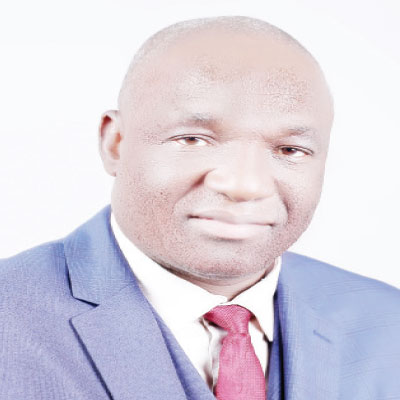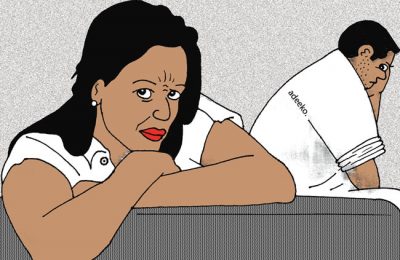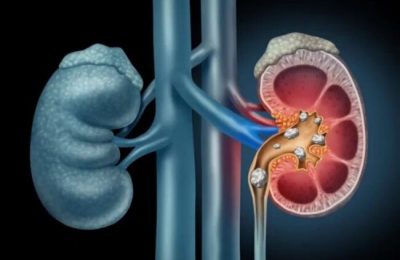The Chairman, Senate Committee on Employment, Labour, and Productivity, and Vice Chairman, Federal Character, and Senator representing Plateau Central District of Plateau State, Senator Diket Plang, in this interview by ISAAC SHOBAYO speaks on the state of the nation, the hardship in the country, insecurity, and senate intervention, among other issues.
Last Tuesday, Nigeria clocked 64 years as a nation. What is your assessment of the journey so far?
The founding fathers of this country were very patriotic and well-determined to give the country a solid foundation for the unity of this country. If not for their efforts, the prevailing unity and togetherness would have been shattered. However, political parties on the ground today are more nationalistic and tend to have a semblance of a national outlook, which is far better than the Second Republic. So, the journey has been up and down; lessons are being learnt with the hope that things will get better in the future. However, Nigeria deserves the best considering where we are coming from. The intervention of the military at different intervals actually caused a setback for the country; the ripple effect is part of what the country is experiencing at the moment.

Sir, from all indications, defection from one political party to another without recourse to the laid down procedures as enshrined in the constitution has become part of our body politic. What is your opinion on this?
This has become a norm and common practice among the political class in the country; however, politics is like an association where there is free entry and free exit. Politics will always be played with people of like minds, who trust each other and share common beliefs. The moment there’s no trust, people will leave. That is why you find people crisscrossing, probably due to lack of satisfaction, exclusion, or probably lack of trust. If any of this exists, you find people moving to political parties where they feel they will be comfortable, but again, we need to drive this country on idealogy. The mistake we are making in this country is that nationalism is secondary to nepotism. Every individual thinks of himself, his family, not the country; second, his community; third, his tribe; and then his religion. All these sentiments tend to come or put into consideration before Nigeria. And all these originated from the formation of this country; it is wrong to key into regional interest rather than national interest. Elections in this country, to some extent, are based on any one of these primordial interests. So, I think in our struggle for amalgamation and fight for the independence of this country, nationalism was downplayed while sectionalism and tribal and religious interests were played up ahead of national interest. We must reorientate ourselves and embrace nationalism for the growth and prosperity of our nation. It is unfortunate that our politics is patterned in this dangerous way; people no longer look at issues on their merit but on sectional interest, and that is why most of the issues that would have been addressed to galvanise the development of Nigeria are still pending. Most of our problems are recurring because they are not being tackled with a broad mind.


The standard of living in Nigeria today is sliding on a daily basis; people are finding it difficult to make a living; there is hardship in the land (cut-in).
There’s no doubt about it; there is hardship in the country; people are finding it difficult to make a living, but President Bola Tinubu, who has the mandate to rule the country, is not sleeping over the precarious situation he inherited from his predecessor. The president has a positive mind and is out to change the narrative positively. Right from day one, I mean May 29, 2023, that he took over the reign of leadership of this country, he is not oblivious to the fact that he is not coming in for a tea party considering the enormous amount of work on the ground. And he has been making concerted efforts to mitigate the hardship on the ground. No matter what anyone would say, he has a team that can deliver, coupled with the fact that governance is not new to him. One thing I want us to realise is that Nigeria is paying for years of misguided policies and poor governance. There were complex issues such as misguided policies, leadership failures, and poor governance inherited by this administration. All these myriad of problems required a systematic approach; they cannot be addressed within a short period of time; it will take time, but along the line, the federal government is putting measures in place to mitigate the hardship that might have arisen. The president’s economic policies are designed to foster long-term stability and sustainable growth, and the government requires our collective commitment and sacrifice. The process of turning around the economy is a journey; therefore, we should be patient and remain united, support one another, and above all, pray for our leaders.
You are one of those who vigorously campaigned for Mr. President, and I want to believe you have been monitoring the trend of events since he assumed office. What has the government done in concrete terms to cushion the effect of the hardship in the country?
To address the hardship, a lot of measures are being put in place, and attention is being given to agriculture to ensure food security. I remember in July the federal government sent 60 trucks of fertiliser to each of the states of the federation. The intervention of the government and encouragement given to farmers this year will definitely force down the price of food items. The citizenry also has a role to play in this regard by not taking advantage of the situation to inflate prices of essential items. The food crisis facing the country is a result of multidimensional issues such as insurgency, banditry, and kidnapping with attendant abandonment of farming by farmers. By the time the federal government finally concretises its plan and arrangements on compressed natural gas-powered (CNG) buses and tricycles, this will ease and reduce the cost of transportation for Nigerians. By the time the conversion workshops and refuelling sites are spread across the country, it will definitely ameliorate the hardship being experienced at the moment. I want to believe that very soon Nigeria will take baby steps to join nations that already have a large fleet of CNG vehicles. Likewise, state governments should also key into this by having designated locations where vehicle owners can get free conversion of their vehicles to CNG. If this can be fast tracked, the burden of the high price of petrol will reduce. All these might require policies that may bring a little bit of hardship, but definitely there would be light at the end of the tunnel. We need to be patient as part of our contribution to the process of rejuvenation and total recovery. The turnaround definitely cannot be sudden; it has to be gradual, and very soon the country will get out of the woods.
Despite the efforts of the security agencies, especially the military, in recent times to tame banditry and other forms of insurgency, the bandits, especially in the North West and North East, have continued to terrorise farmers, demanding levies from them before they could farm or harvest their produce. What is the way out of this logjam?
It is quite unfortunate that most of the agrarian communities in the far northern parts of this country are facing this kind of attack. The President has recently given the security chiefs the marching order to arrest the situation. Though our military and security agencies are doing their best, they need to be more resolute and determined to arrest this pathetic situation. If not tamed on time, it can jeopardise all efforts being put in place towards food security because most of the areas these elements are terrorising are the food basket of the nation, so they must double their efforts. But let’s give kudos to the military; of recent they have been able to reduce the issue of banditry and kidnapping in the North West and North East. Some of the leaders of these notorious groups are being eliminated one after the other.
Another area that is breeding banditry is mining. Though the Ministry of Mines, in conjunction with the NSCDC, has established what is called Mining Marshall, this is a welcome development. It should be complemented with adequate policing of our porous borders, where these elements are used to gain access to the country. Also, as harvest season is approaching, farmers, especially those in the North Central States of Plateau, Benue, Nasarawa, and Kogi States, need protection of lives and their farms.
Sir, parts of your constituency early this year were under severe attack by gunmen, thereby forcing the natives, mostly farmers, to abandon their ancestral homes and farms. What is the situation at the moment?
There is relative stability and peace at the moment, thanks to the security agencies, traditional rulers, religious leaders, and other stakeholders who devoted their time and energy to ensuring peace in the troubled parts of Plateau Central Senatorial District. The governments and the security agencies are leaving no stone unturned to ensure permanent peace in the troubled Mangu and Bokkos local governments and other places prone to attack in the state. At the moment there is relative peace, but the security agencies need to build on this.
Based on the electoral promises of APC, the conclusion being drawn is that your party has failed the country.
It is too early to judge the President Tinubu-led administration looking at what he inherited. Do you know that it is much easier to destroy than to rebuild? The country is presently in the process of reconstruction, not at the precipice as some people tend to portray the country. The security challenges facing the country are being tackled head-on. The recent local government autonomy is equally an indication that the president meant well for this country. If what we are passing through will give us a better tomorrow, I will continue to plead that we should be patient. And for those of us in government, we need to monitor the policies being put in place to ensure that they work for the good of the people. On the removal of petroleum subsidies, if the proceeds from the removal of subsidies are translated to meet the needs of the people and used to subsidise critical areas of needs such as education, agriculture, transportation, and health, among other needs, it will not be a regrettable act.
The general impression is that the Senate is not doing much concerning the hardship in the country by taking a definite stand on the terrible situation.
The situation at the moment is quite different from the past; presently we have a President and Vice President who were once senators; it therefore implies that there can be amicable understanding between the two arms of the government and each side knows the function of the other side. So, because of the mutual understanding between the legislative and the executive arms, there will be no collision on functional interest; I don’t expect any collision of interest, and more so, we are in a period when there should be collaboration and understanding among all tiers of governments, especially when you have a government that is coming in at a very tough period. The tenth senate is senate with a desire for balance and stability. Government is just like a family; we have the executive, the legislature, the judiciary, and so on. There must be synergy for a very stable family.
What have you done in term of palliatives for your constituents to cushion the effect of the hardship being experienced in the country?
We are not relenting in our efforts in this regard. In addition to what the state and federal governments are doing, it also behoves on us to give back, especially at this crucial moment. Shortly before the rainy season set in, a total of ten trucks of fertiliser was shared to farmers across the five local governments that make up Plateau Central Senatorial District to boost farming activities, while 8,000 bags of grains were shared with the people. Solar-powered electricity is also being installed in some selected secondary schools and fencing for security reasons. Plans are also underway to equip and empower farmers ahead of dry-season farming.
READ ALSO: Group wants Gov Mutfwang to rescind suspension of traditional ruler








